
Nanjing was the first place he encountered martial arts, starting Muay Thai at 13.
He started jiu-jitsu at 15 years of age under the coaching of Guillaume Leclerc, saying “This was the first time I wanted to get good at something” as he had very little motivation with school success.
Jozef explains that he fell in love with jiu-jitsu because of the way it was presented to him. He differentiates it from other things presented to him, such as school, by stating that it was his decision and his alone to train in jiu-jitsu. This fact of not being forced to do it allowed him to enjoy the sport.
Jozef’s Development
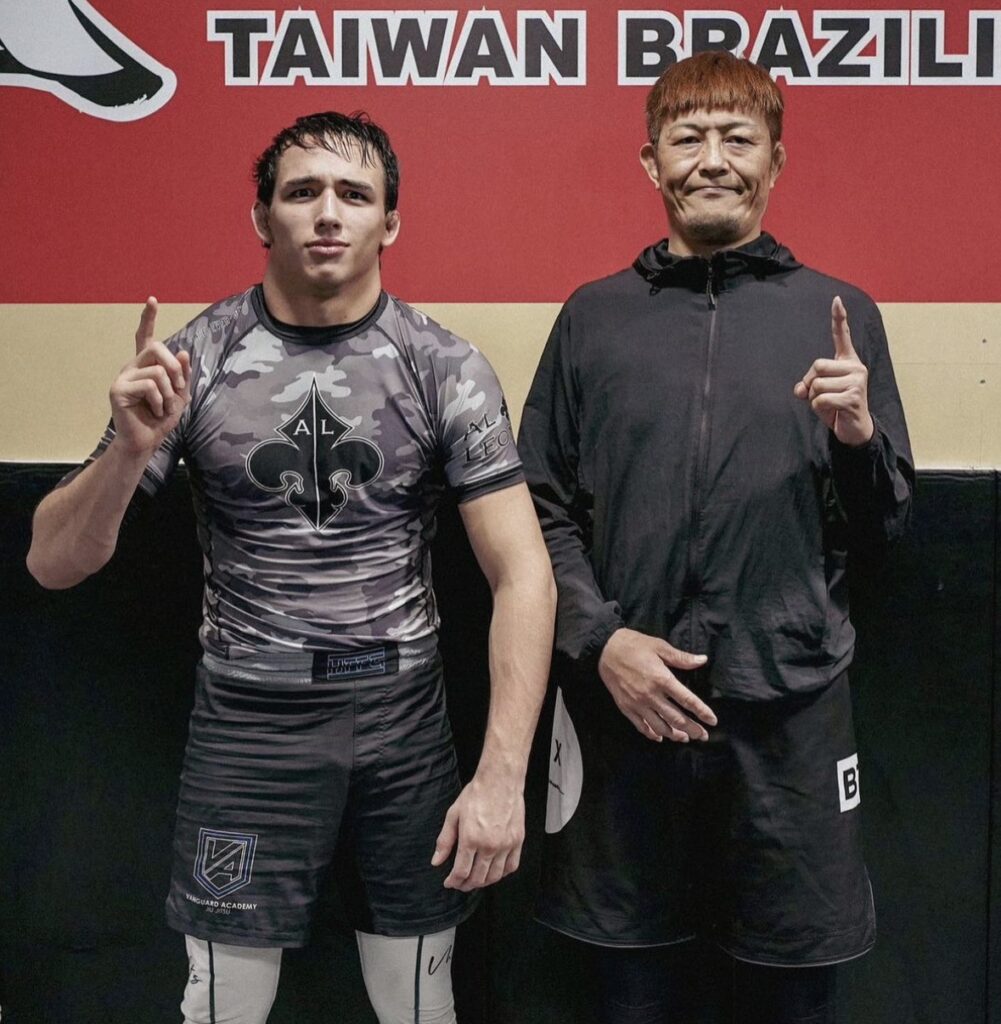
It’s known that Guillaume Leclerc remained Chen’s main instructor from the kids’ belts to the purple belt rank—the moment when Jozef started adventuring in the international competition scene.
During COVID-19, Jozef’s Jiu Jitsu journey underwent a transformation. He was presented with an opportunity to focus more on Jiu Jitsu as he didn’t have any school obligations. He was fully immersed in the sport, except for the time he spent watching instructional videos. Jozef deliberately learned and searched for information from BJJ materials such as “BJJ Mental Models,” “BJJ Fanatics podcast,” and “Grappling rewind.” These resources gave him insight into many Jiu-Jitsu athletes and powerful motivation to progress.
Jozef has been learning jiu-jitsu under the guidance of his instructor Guillaume, who has been trained by Rob Bernacki. According to Jozef, Guillaume’s teachings have been immensely helpful in clarifying many conceptual ideas related to jiu-jitsu, such as base, frames, and levers. Now, Jozef has a better understanding of these concepts and is able to apply them effectively. For instance, it has helped Jozef conceptualize that base refers to the platform from which he generates and absorbs force.
Guillaume also advised Jozef to seek out information by himself, so that he’s in a position to learn more without being dependent on him, then to test the research with his partners and coach.
Jozef’s Jiu-Jitsu concepts in training
One of the first concepts Jozef learned is the “Ecological learning process”, which is the process that involves creating an environment that highlights specific skills. In a particular context, certain reactions are required to achieve a specific goal, which leads to the development of good habits and skills when interacting with a partner. Basically, having a desired outcome, such as maintaining defense or pressuring more, helps you design a game around it.
Training and Learning with the use of games
The first game principle that was taught for training Jozef is called “Crazy Turtle”. In this position, the person on the bottom starts in a side pin position, but without the chest to chest contact. The person on the bottom then tries to turtle, creating a situation where the person on top has to keep the person from “re-guarding” while being pinned, without using his chest.
According to Jozef, when the top person in a grappling situation is handicapped, they are forced to think more critically about the mechanics involved, such as frames, levers, and wedges, rather than relying purely on their physical strength. As the top player gains more experience in this situation, they become more adept at analyzing why their opponent is able to turtle up and what they can do to counter it.
Jozef suggests that everyone should incorporate this type of training in their routine. If you have an idea of what you want someone to do, you can design your game accordingly. Jozef implemented this approach in the context of ADCC by having someone start in Guard and their goal being to stand up while the other person tries to hold them down. According to Jozef, this approach forces people to think more about a given problem rather than just engaging in open round sparring.
Tracking your progress
Jozef has a unique way of learning. He journals everything he learns in class and then processes it to come up with his own thoughts and conclusions. He believes that relying solely on instruction doesn’t give him the “first-hand” experience that sticks to his mind. Similarly, he doesn’t write down anything from watching instructionals unless he has personally experienced it. To make the most of the instructional videos, he records the parts he wants to review and tries to apply them in his training. If he finds anything of value, he writes it down for future reference.
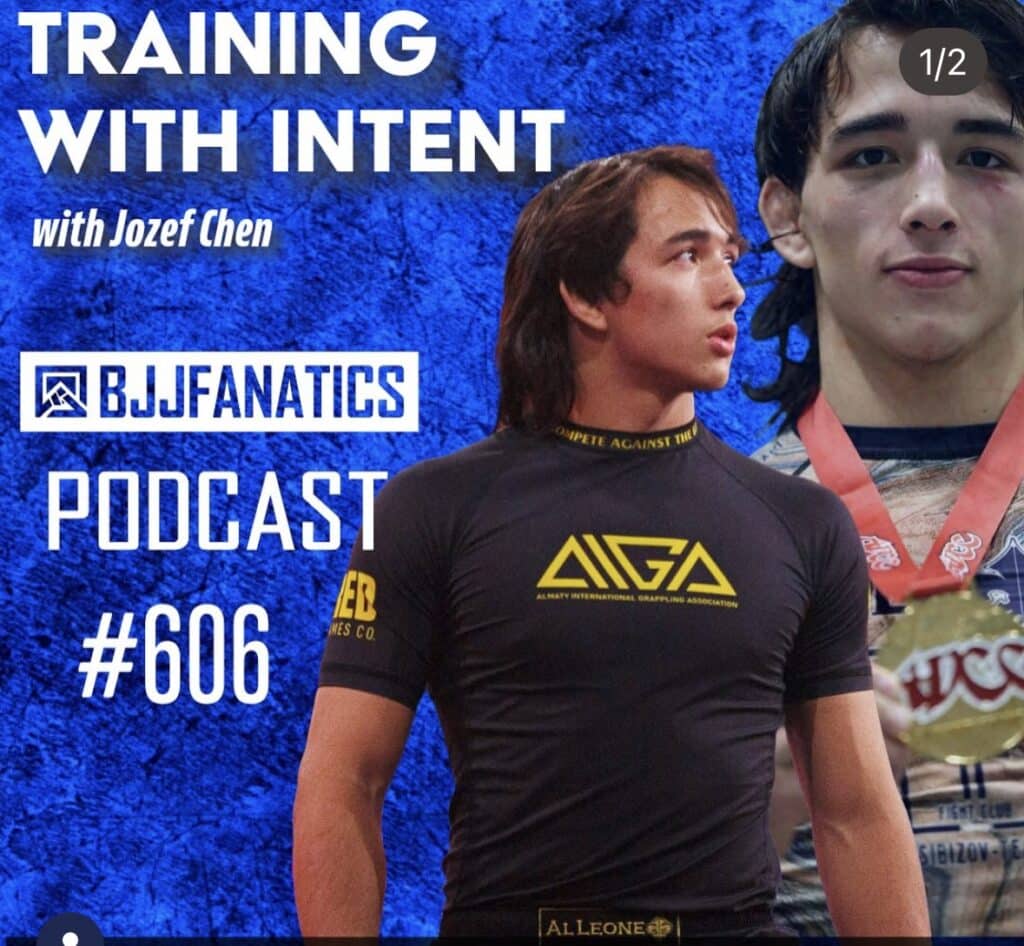
If you’re interested in progressing like Jozef, apply concepts and games to your sessions, and make sure you train with intent, check him out at https://bjjfanatics.com/products/engaging-without-regrets-by-jozef-chen


![Darce Choke Encyclopedia – Origins, Mechanics and Variations [2024] BJJ, choke, Brabo, BJJ Darce Choke, D'arce Choke, Darce BJJ Choke](https://bjj-world.com/wp-content/uploads/2017/11/JungPoirierLeeYahoo-218x150.jpg)







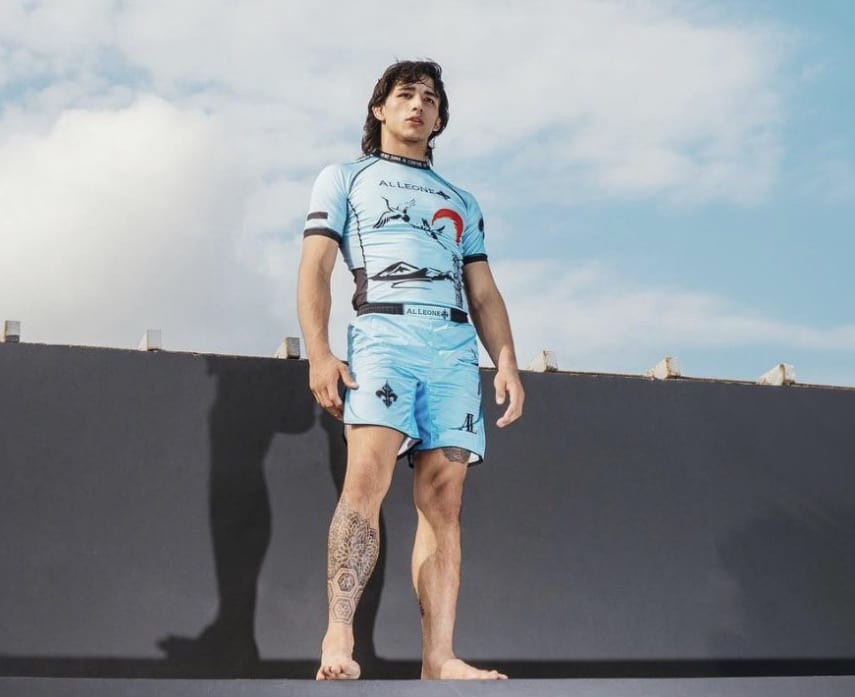



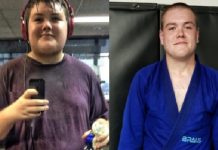
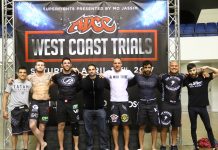
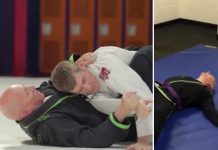




![Kill The Underhook Dima Murovanni DVD Review [2024] Kill The Underhook Dima Murovanni DVD Review](https://bjj-world.com/wp-content/uploads/2024/10/kill-the-underhook-dima-murovanni-dvd-review-100x70.png)
![Tricks for Unstoppable Takedowns Georges St Pierre DVD Review [2024] Tricks for Unstoppable Takedowns Georges St Pierre DVD Review](https://bjj-world.com/wp-content/uploads/2024/12/unstoppable-takedowns-georges-st-pierre-dvd-review-100x70.png)





![The Buchecha Gi Takedown System DVD Review [2025] The Buchecha Gi Takedown System DVD Review](https://bjj-world.com/wp-content/uploads/2025/01/buchecha-gi-takedown-system-dvd-review-100x70.png)
![Jett Thompson Master Ankle and Aoki Lock DVD Review [2024] Jett Thompson Master Ankle and Aoki Lock DVD Review](https://bjj-world.com/wp-content/uploads/2024/09/jett-thompson-master-ankle-and-aoki-lock-dvd-review-100x70.png)
![Mastering Control From Top Position Trent Hidlay DVD Review [2024] Mastering Control From Top Position Trent Hidlay DVD Review](https://bjj-world.com/wp-content/uploads/2024/11/control-from-top-position-trent-hidlay-dvd-review-100x70.png)


![Edging Yourself Out Of Danger Craig Jones DVD Review [2024] Edging Yourself Out Of Danger Craig Jones DVD Review](https://bjj-world.com/wp-content/uploads/2024/12/edging-yourself-out-of-danger-craig-jones-dvd-review-100x70.png)
![How to Double Leg Anyone Kevin Lee DVD Review [2024] How to Double Leg Anyone Kevin Lee DVD Review](https://bjj-world.com/wp-content/uploads/2024/11/how-to-double-leg-anyone-kevin-lee-dvd-review-100x70.png)

![Efficiently Executing X-Guard Giancarlo Bodoni DVD Review [2024] Efficiently Executing X-Guard Giancarlo Bodoni DVD Review](https://bjj-world.com/wp-content/uploads/2024/09/efficiently-executing-x-guard-giancarlo-bodoni-dvd-REVIEW-100x70.png)
![Jeff Glover Deep Half Revolution DVD Bundle Review [2024] Jeff Glover Deep Half Revolution DVD Bundle Review](https://bjj-world.com/wp-content/uploads/2024/10/jeff-glover-deep-half-revolution-dvd-bundle-review-100x70.png)



![Wristlocks From The Top Pete Letsos DVD Review [2025] Wristlocks From The Top Pete Letsos DVD Review](https://bjj-world.com/wp-content/uploads/2025/01/wristlocks-from-the-top-pete-letsos-dvd-review-100x70.png)
![Leg Locks From Beginner To Advanced Dan Manasoiu DVD Review [2024] Leg Locks From Beginner To Advanced Dan Manasoiu DVD Review](https://bjj-world.com/wp-content/uploads/2024/12/leg-locks-from-beginner-to-advanced-dan-manasoiu-dvd-review-100x70.png)
![Mastering The Crucifix Alexandre Pereira DVD Review [2025] Mastering The Crucifix Alexandre Pereira DVD Review](https://bjj-world.com/wp-content/uploads/2025/01/mastering-the-crucifix-alexandre-pereira-dvd-review-100x70.png)
![Crossing and Spinning Steps To Attack Israel Hernandez DVD Review [2024] Crossing and Spinning Steps To Attack Israel Hernandez DVD Review](https://bjj-world.com/wp-content/uploads/2024/09/spinning-steps-to-attack-israel-hernandez-dvd-review-100x70.png)
